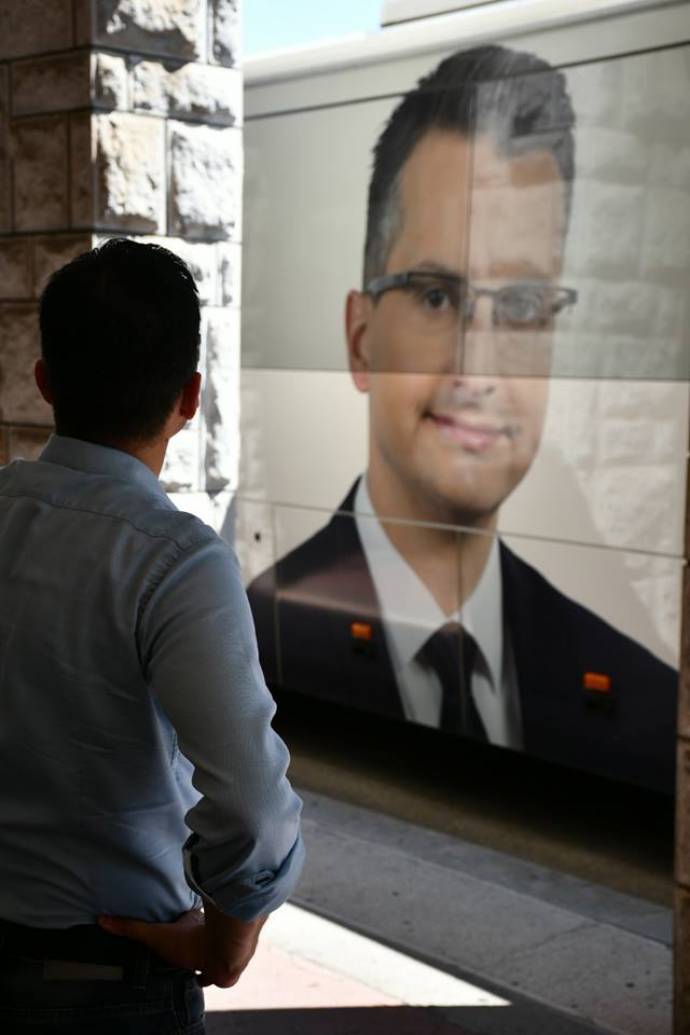Šarec told the press that the meeting had been "extremely correct" and that the representatives of the Alenka Bratušek Party (SAB), Social Democrats (SD), Pensioners' Party (DeSUS), Modern Centre Party (SMC) and New Slovenia (NSi) had all agreed on the "project contract".
"This means that the coalition agreement will not be a hundred-page document but that we'll agree on which projects are crucial for Slovenia," Šarec said.
These would then be the government's priorities next to the tackling of day-to-day issues. If all parties agree, the contract will also include dates for the implementation of the projects, the LMŠ president added.
He denied having picked this type of contract because of the NSi. "It's because so many parties conduct talks and that's how it is these days," he said.
In the past, coalition agreements were long and broad but then they were left unimplemented, he noted.
The NSi head, Matej Tonin, welcomed the idea of the "project contract" with concrete figures and deadlines, but was quick to point out that he was also in constant contact with Democrats' (SDS) head Janez Janša.
In the next round of talks with the LMŠ, efforts will be made to find common ground on the most topical issues, he said, listing the relations with Croatia, the fate of the NLB bank and the pay agreement with trade unions.
The NSi's priorities include cutting the waiting times in health, raising wages through income tax incentives, a trial period for judges as a part of a reform of the judicial system, and implementation of all Constitutional Court decisions, Tonin said.
The head of the SAB, Alenka Bratušek, told the press after the meeting that their key priorities were to cut waiting times in health, raise pensions, allow pensioners to continue working without sanctions, and to set up a non-profit housing fund enabling the young to get an apartment.
The party would also like to change the election system by introducing at least the preferential vote, so people could decide who will sit in parliament, Bratušek said.
At the meeting with President Borut Pahor at the beginning of next week, the LMŠ will tell the president that it would not join a government led by the election winners SDS and that it was conducting coalition talks with a group of parties.
The LMŠ will also tell Pahor that it was right for the relative winner of the election to get the first chance to form a government.
Šarec also met the Left today to discuss project cooperation. The party coordinator, Luka Mesec, said the decision on this would be made by party bodies.
Mesec said the composition of the emerging Šarec-led coalition was "pretty clear". It will comprise of centrist parties and the NSi without the Left, he said.
He implied the party had made such a decision because the potential coalition partners had not expressed the intention of putting the Left politicians before the demands of the capital.
Asked whether the goal of the talks with the Left was to secure the party's support at a possible vote on him as prime minister-designate or his government, Šarec said it was too early to speak of any such voting.
"If we start by closing the door, then it will be difficult to work," he said.
Šarec added he had decided for a separate meeting with the Left because of its "known positions that somehow run contrary to those of some other parties".
After meeting the LMŠ, the Left conducted separate talks with the SD, with SD president Dejan Židan saying after the meeting that nothing final had been agreed and that the option of Slovenia getting a centre-left government was still open.
Židan believes that talking about some parties being excluded and some not was wrong. "This is why our proposal is that we don't behave at this moment as if a government has been agreed on, because it hasn't," he added.
But the Left has established that it has been de facto already excluded from the coalition-building talks led by Šarec. Mesec said that the party did not participate in the meetings of the six, and that a coalition agreement would start to be harmonised without them on Friday.
Mesec reiterated that the Left would not go into a coalition with the NSi, as the two parties differed in all key points constituting economic and welfare policies.







